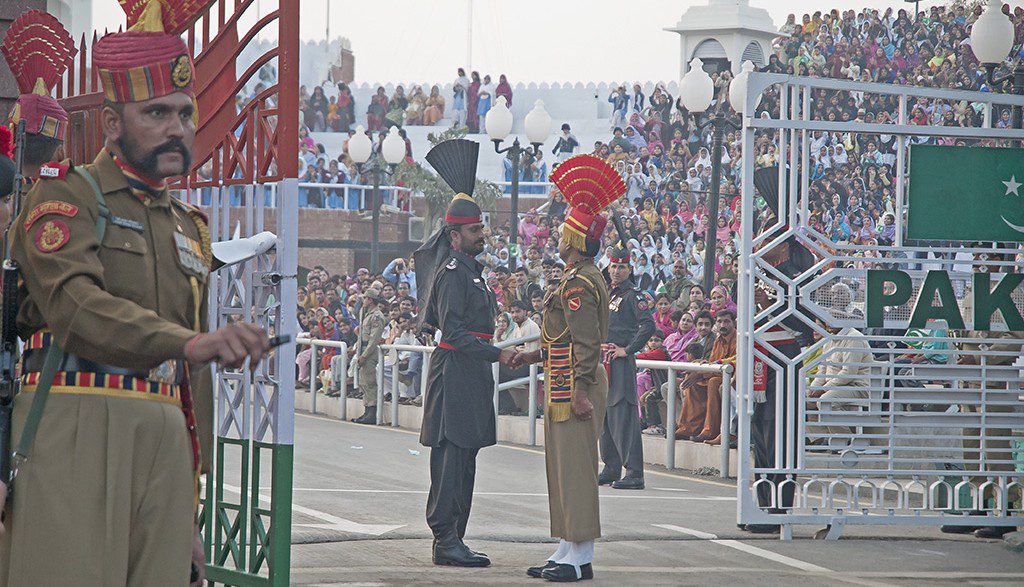Tensions between India and Pakistan have intensified following the April 22 terror attack in Pahalgam, which killed 26 tourists in India-administered Kashmir. The incident has pushed the two nuclear-armed neighbours dangerously close to the brink of conflict.
In a significant escalation, Indian Prime Minister Narendra Modi granted the armed forces full operational freedom to determine the timing, targets, and mode of a military response. The decision, announced after a high-level security meeting with Defence Minister Rajnath Singh, National Security Adviser Ajit Doval, and Chief of Defence Staff General Anil Chauhan, has raised alarm across the region, report agencies.
Meanwhile, Pakistan’s Defence Minister Khawaja Muhammad Asif warned of an “imminent” Indian military incursion, stating that Pakistan had placed its forces on high alert and would consider strategic retaliation if its sovereignty is threatened.
Modi’s greenlight for military action, coupled with Pakistan’s warnings and heightened alert status, has sparked renewed fears of a potential confrontation between the long-time rivals. With both countries equipped with nuclear arsenals and a fraught history over Kashmir, the situation remains volatile and closely watched by the international community.
Sources said the Indian prime minister “re-affirmed that it is our national resolve to deal a crushing blow to terrorism.”
Shortly after the meeting, Home Minister Amit Shah and Mohan Bhagwat, chief of the Rashtriya Swayamsevak Sangh – the ruling BJP’s ideological mentor – arrived at the prime minister’s residence.
The PM’s message, sources explained, greenlights military action against the terrorists who killed 26 people, mostly civilians.
Pakistan’s Defence Minister Khawaja Muhammad Asif on Monday claimed that a military incursion by India appeared imminent, following the 22 April terror attack in Jammu and Kashmir’s Pahalgam.
Speaking to media in Islamabad, Asif said: “We have reinforced our forces because it is something which is imminent now. So, in that situation, some strategic decisions have to be taken, so those decisions have been taken.”
He added that India’s rhetoric in the aftermath of the attack had intensified, and that the Pakistani military had briefed the civilian government about the possibility of military action from New Delhi.
India has blamed the attack on The Resistance Front (TRF), a proxy of the Pakistan-based Lashkar-e-Taiba (LeT), and claimed that preliminary investigations had identified two of the attackers as Pakistani nationals.
India claims the incident was an act of cross-border terrorism supported by Pakistan. The Indian Prime Minister has vowed to hunt down and punish the perpetrators.
In retaliation, India has suspended the Indus Waters Treaty to deprive Pakistan of water from the Indus River, which flows through the India-controlled region of Jammu and Kashmir, according to reports.
New Delhi directed its anger towards Pakistan, accusing its neighbour of fuelling a violent separatist insurgency in the scenic Himalayan region. Both India and Pakistan administer parts of Kashmir and claim the region in its entirety. Islamabad has denied any involvement in the Pahalgam attack.
While India has vowed a “strong response” and Prime Minister Modi has pledged to pursue the attackers “to the ends of the Earth”, security experts say the prospect of an all-out war “remains unlikely”.
Addressing supporters two days after the deadly militant attack in Pahalgam, Prime Minister Modi told a global audience: “India will identify, track and punish every terrorist and their backers. We will pursue them to the ends of the Earth.”
On 27 April, the Indian Navy conducted long-range missile drills. India also stated that its troops had responded to small arms fire from Pakistani positions.
Islamabad has denied any involvement and called for an impartial, international investigation.
Asif also reiterated Pakistan’s stance on the use of nuclear weapons, saying that the country would resort to its strategic arsenal only in the event of an existential threat.
“Pakistan is on high alert, and it would only use its arsenal of nuclear weapons if there is a direct threat to our existence,” he told news agencies.


